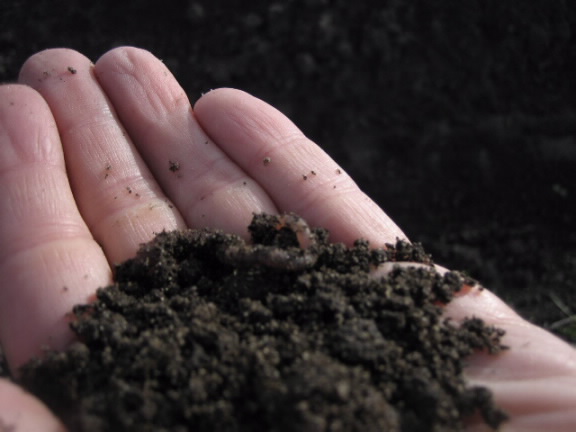
I have 60 or more reasons to be optimistic.
Given that:
1. I come from a fairly healthy gene pool 2. I know every secret to healthy aging thus far discovered 3. I apply this knowledge on a regular basis 4. Have previously declared in print that I want to live past the age of 100 5. I never lie (especially in print)
I like to believe that my life is only 1/3 over.
While people the world over seem to be mired in the mess we've collectively created (and it's a pretty big one), I've already started laying the plan for what will inevitably come -- the next 2/3 of my life.
I've always been a planner, and take a little smug pride in being self-sufficient (I think this is partly related to the fact that I wasn't breast fed -- thanks, mom!)
In kindergarten, my grandfather would give us a quarter each morning so that we could buy an ice cream after lunch. I knew even at the age of 5 that I did not need ice cream. What I needed was the exceptionally satisfying sound of that quarter hitting all the other coins at the bottom of my piggy bank. (Note: my grandfather made it well-known that when he was a young boy in the Depression, they never had money to buy ice cream.)
While my youth was spent doing odd jobs (baby sitting, mowing yards, taking care of sick animals), when it first became legal for me to join the workforce and pay taxes -- at the age of 15 in North Carolina -- I did! I bagged groceries from sun-up until sun-down every weekend, and when my check came every two weeks, I did not complain about the taxes being taken out nor did I find some sneaky way of not paying taxes at the end of the year (which seems to be a special talent of those who make more than a bag boy and of those who seek a job in government).
During the summers, I took whatever temp work could be found in the local factories. I tested hot water generators for Black & Decker, lifted heavy trays of batteries for Eveready, and packed powdered shrimp bisque into little bags for Knorr-Best Food (our family cat was especially affectionate toward me during this employment.) Incidentally, almost all the factories that I worked in have closed. When I return home, they are empty, hulking, corrugated monuments of my youth.
In high school I worked at McDonalds, and during the summer between my senior year and my freshman year in college, I worked at McDonalds 5:00am to 2:00pm and then went to a job in a factory from 3:00pm to 11:00pm.
By the start of college classes in the fall, I had saved enough money to cover my tuition and expenses. Many kids at that age are know-it-alls. I for sure knew one thing: a lifetime of working in a factory or behind the stoves at McDonalds is not all it's cracked up to be. That's a powerfully motivating lesson to learn.
You have probably guessed without me telling you that I worked my way through college. I could have asked my parents for money, but I was slightly embarrassed by the thought of it, so I didn't. I slaved for that education, and, dammit, I own it. There's a certain respect and gratitude that comes when you have to work so hard for something. In the end, you truly "get" what you paid for.
I then went on to medical school. Determined to not be saddled with a debt that would forever dictate my life, I did two things. I took out the maximum amount of federally subsidized loans available (the taxes I paid all those years covered these) and considered them to be my "emergency reserve". I deposited them in extremely safe and conservative investment vehicles (far away from the over-promising reaches of the Madoffs and Stanfords of the world), and then took a job working 20 hours a week to cover my bills. It was hard, and I was perpetually exhausted, but the week after I received the degree, I paid back all of those loans and pocketed the interest that had accumulated, perhaps the first medical student in the history of modern medicine to graduate from medical school richer than when he matriculated.
I used that money to rent my first apartment in the Spanish Harlem section of NYC, a poor yet vibrant neighborhood surrounding Columbia-Presbyterian Hospital where I was completing my post-graduate training. When my mom came to help me move in, she was scared. To this day it is still the closest thing to "the developing world" that she has ever seen. (She doesn't travel often.)
I lived in NYC on $36,000 a year. I could do this because I had no debt to pay, a nifty little fact that also enabled me to choose the specialty of medicine that I was most passionate about --geriatrics (of course this necessarily meant that I could not spend weekend nights in trendy bars, fancy restaurants, or rubbing elbows with the Hilton sisters, but these are hard choices we all have to make at some point in our lives).
After practicing medicine for several years, I decided it was time for change. I am still in awe of my colleagues who can either give so much of themselves emotionally each day without suffering consequence or have found a way to distance themselves without compromising care.
I couldn't, so I sold out. I went to business school. The only thing that (slightly) diminished the great disappointment of my family was that my first job out of business school was working with Martha Stewart, a person whose work ethic is justifiably legendary. Together we established the Center for Living at Mount Sinai, dedicated to developing the models of care that will help us meet the future demands of our aging society. We helped bring awareness to the needs of family caregivers and helped bring good, practical information about leading a healthier life to the millions of people who come to Martha eager to learn about all things involved with "living". I learned a lot from working there, too.
The global economic meltdown -- which I intend to call "The Great Correction" -- has temporarily thwarted my intentions of making the entire world healthier (I'm not Bill Gates after all) but has fortunately given me pause to think about the next 2/3 of my life...and to do a little planning.
I may reference what I learned in medical school, and the things I know from the world of business may make for some intriguing footnotes and sidebars, but I'm thinking the lesson that will best serve me were learned much earlier in life.
My grandparents, children of the Great Depression, would say things that probably are pertinent to the children of the Great Correction:
A penny saved is a penny earned
Don't count your chickens before they hatch
Too good to be true usually is
You can't get something for nothing
Never trust to others what you can do for yourself
and
Don't forget your roots.
These are all truisms that we should admonish ourselves for having forgotten. Did these emerge from a simpler time? Probably. But perhaps in this age of derivative markets, bundled mortgages, buy now, pay later and Ponzi schemes, a period of simplicity is exactly what we all need in order to get us back on the right path.
60 more years is quite a long time, and I am quite optimistic that despite this year (and maybe the next) each of those years will be better.
To give you a hint of what's in store, the next phase of my life includes this

And a few of these

And some of this

And a tremendous amount of uncertainty.
Should you choose, you can follow along. To learn more about Brent's experiment in seasonal living, visit www.beekman1802.com